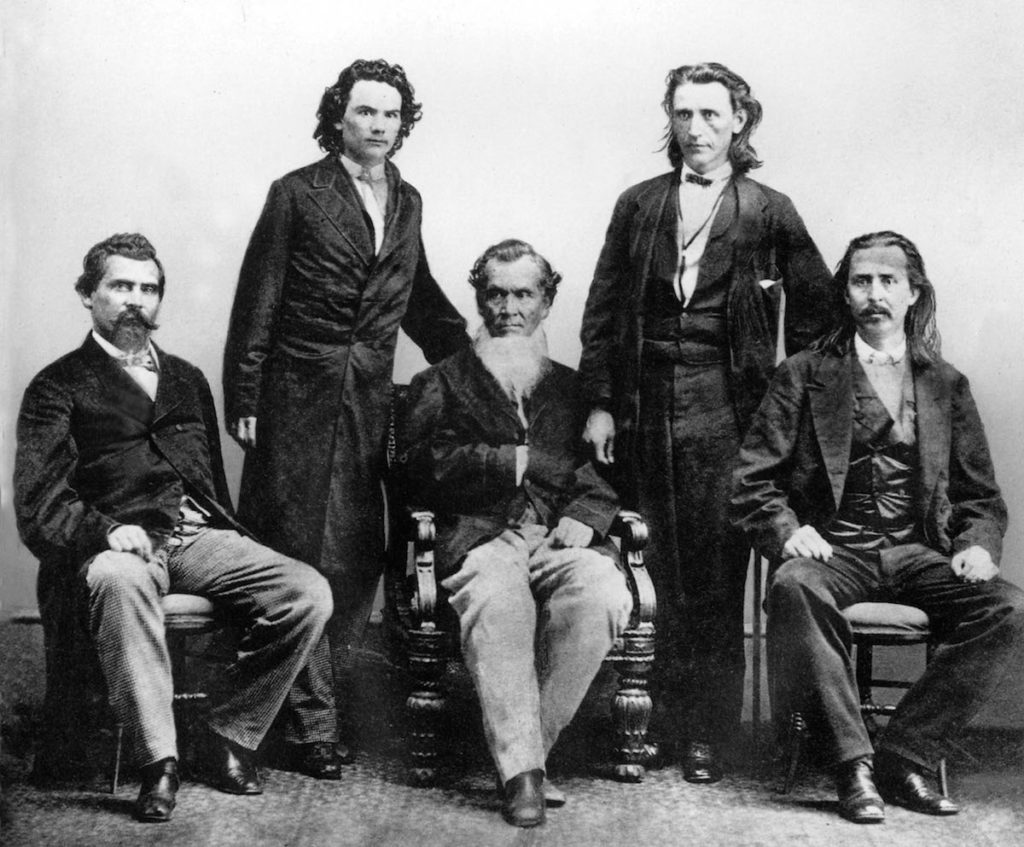Race and the Tribes

I’ve highlighted this issue before, but one of the most complex racial issues the nation has is the Oklahoma tribes that adopted chattel slavery trying to deny tribal status (with the resource distribution casino money brings with it) to their descendants. Alaina Roberts, a scholar of the issue and a descendant of the mixed-Black and Native relationships that came out of slavery, writes a good piece on this:
Last July, Indian Country rejoiced in a rare win for tribal sovereignty in the nation’s highest court. In a ruling that would reshape the jurisdictional landscape of Oklahoma, the U.S. Supreme Court found that since the Muscogee (Creek) Nation Reservation was not disestablished by an 1866 treaty, the tribe still has authority over criminal matters within its boundaries. Legal experts describe the decision as one of the most monumental federal Indian law cases in modern history.
But for many in this part of Indian Country, a similar win for tribal sovereignty was met with a different reception. In February, the neighboring Cherokee Nation Supreme Court struck the words “by blood” from its Constitution, similarly ruling that the rights outlined in the Treaty of 1866 would be upheld. This came after a 2017 U.S. District Court ruling found that the treaty guaranteed tribal citizenship to the descendants of “Freedmen” — the Black women and men once held in bondage by the tribe.
The Cherokee Nation Supreme Court decision reflects an argument that the tribe’s attorneys have made in adoption cases involving Cherokee children: Tribal citizenship is about more than race, it’s about nationality. Native nations are sovereign bodies whose citizenship revolves around treaties, legislation and historical precedent, and this ruling represents the Cherokee Nation’s willingness to reckon with its past participation in slavery, if in a halting and largely unwilling fashion, similar to the United States.
As a historian and a descendant of Black and mixed-race people enslaved by Chickasaw and Choctaw Indians, I am well aware that this issue is complex. But I believe, as I discuss in my forthcoming book, I’ve Been Here All the While: Black Freedom on Native Land, that Native nations must confront their slaveholding pasts, just as they push the United States to reckon with its own settler colonial sins.
…
The impetus for the Cherokee Supreme Court’s decision was a challenge put forth by Robin Mayes, a candidate for tribal council. He argued that another candidate, Marilyn Vann, was not eligible to run for this position because, as a Freedman descendant, she was “not [legally] Cherokee by blood as required by the Constitution.” His challenge was tossed out within a matter of days and followed by the Cherokee Nation Supreme Court’s ruling. But what if it had not been? Would Cherokees have continued on, knowing that they were sanctioning second-class citizenship, where Black Cherokees could not hold office? Is this the sort of tribal sovereignty Native people across this country want to support?
Indian Country should care about its treatment of Black Cherokees and other Freedmen descendants. We are the canaries in the coal mine that is the complicated morass of kinship, belonging and nationhood; we are a constant reminder of the importance of shared history and treaty obligations.
Cherokee Nation Principal Chief Chuck Hoskin Jr. has advocated for acknowledgment of Freedmen, and introduced a program to reconfigure tribal museums and other public history venues to include Freedmen history as part of the Cherokee narrative. We need more tribal leaders who see publicly reckoning with past injustices as a strength, rather than a weakness.
Race in this nation is a tremendously complicated set of interlocking issues and we do a massive disservice to everyone when we simplify to fundamentally being a Black-White issue.
